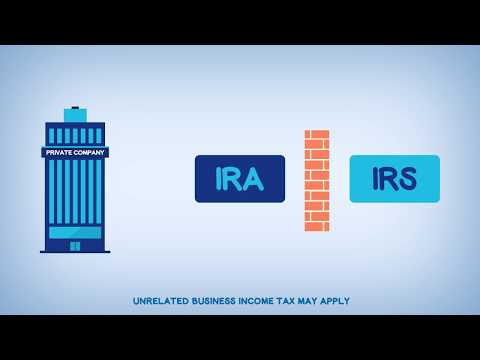Workshop | 2022-2023 State of the Union for Real Estate Investors & Entrepreneurs | September 21st @ 1:00 p.m. EDT
X

Choose an account type

- Individual Investors
- Financial Professionals
- About
- Resources
- IRS Rules
- Fraud Protection
- Financial Calculators
- 401(k) Contribution Calculator
- 401(k) Distribution Calculator
- Annualized Rate of Return Calculator
- Beneficiary RMD Calculator
- Ending Account Value Calculator
- Required Interest Calculator
- Required Minimum Distribution Calculator
- Required Savings Calculator
- Retirement Income Calculator
- Roth IRA Calculator
- Years Until Retirement Calculator
- FAQ
- Events
Take control of your investments with a Self Directed IRA
Open An Account Today
Try one of our calculators

Check out our FAQ and get your questions answered
Using a Self-Directed IRA to Invest in Private Companies
Investments into private placements are booming – new capital in pre-IPO companies is up over 77% from 2010 according to the National Venture Capital Association. Based on stronger balance sheets, other companies are accessing private capital to expand production or explore new markets. Through a self-directed IRA, investors can take advantage of these growing investment trends through private placements.
Why Invest in Private Entities via IRAs?
Private placements typically do not provide easy liquidity for an investor, at least in the short term, but this lack of liquidity can result in higher yields for the investor, a great trade-off for many IRA holders. Should a private company later go public, the tax-deferred nature of IRAs can keep the funds working without taxation until distribution. Within a Roth IRA, future distribution may be tax-free.
Types of Private Companies That Can Be Purchased with an IRA

LLCs

Corporations

Partnerships

Start-ups

Hedge Funds

Crowdfunding

REITS

LPs
Getting Started with Private Placement
- Set Up and fund a self-directed account with NuView Trust
- Identify a private entity in need of investors
- Submit a Purchase Authorization and loan documentation to NuView
Take Control of Your Financial Future!
Frequently Asked Questions About Private Entities
While investments into private companies that are taxed, such as a C Corporation, will generally not create a tax liability within an IRA, this may not be the case when investing in a pass-through tax entity such as an LLC (S Corporations are unable to take IRA investments). As always, speak with a tax adviser about the tax implications of investing an IRA in an operational business with a pass-through tax structure as an Unrelated Business Income Tax liability may accrue. NuView is not a fiduciary and therefore cannot offer investment advice.
As with all investments, the IRA holder should continue to monitor the performance and appropriateness of their investments. At the end of each year, the account holder will provide a third-party valuation of their investment to NuView to meet the requirements of the IRS.
Any dividends or other earnings from the investment belong to the IRA, which can be re-invested as directed. If the funds are invested into an operating company that is a pass-through tax entity, Unrelated Business Income Tax, or UBIT, may be accumulate and must then be paid by the IRA. As always, a tax advisor can provide more information on specific investments.




